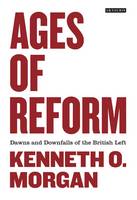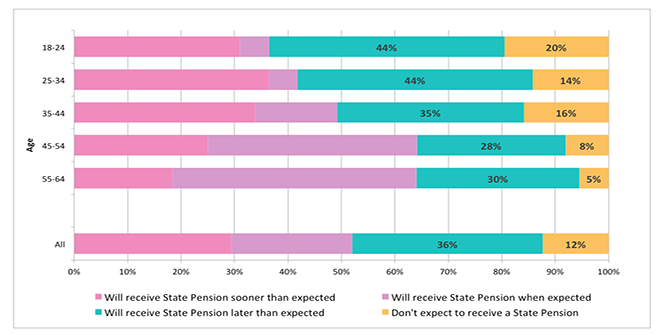Ben Davies feels that Kenneth O. Morgan‘s academic dedication and meticulous research on the history of the British Left is clouded by idealisation, but remains an interesting text nevertheless.
Ages of Reform: Dawns and Downfalls of the British Left. Kenneth O. Morgan. IB Tauris. December 2010.
Find this book at: ![]() Google Books
Google Books ![]() Amazon
Amazon
 Labour Peer Kenneth O. Morgan has had a distinguished academic career that has seen him develop particular research interests in the history of Wales and the British Labour Party. Ages of Reform contrives to harmonise these two passions, with Morgan at pains to stress the importance of the Welsh working class movements in aiding the development of a political, socialist consciousness across Great Britain. A historian well-rehearsed in the personal minutiae and principal motivations behind some of the twentieth century’s key Labour figures, and after writing acclaimed biographies on Hardie, Foot and Callaghan, Morgan is well-positioned to offer an informed oversight to the turbulent history of the British left.
Labour Peer Kenneth O. Morgan has had a distinguished academic career that has seen him develop particular research interests in the history of Wales and the British Labour Party. Ages of Reform contrives to harmonise these two passions, with Morgan at pains to stress the importance of the Welsh working class movements in aiding the development of a political, socialist consciousness across Great Britain. A historian well-rehearsed in the personal minutiae and principal motivations behind some of the twentieth century’s key Labour figures, and after writing acclaimed biographies on Hardie, Foot and Callaghan, Morgan is well-positioned to offer an informed oversight to the turbulent history of the British left.
As a collection of essays, Ages of Reform does keep its continuity relatively well. A great deal of emphasis is placed on Lloyd George, the great reformer, and, in Morgan’s opinion, the first electoral bastion of the British left. His research on Lloyd George has been acclaimed, and he certainly paints a vivid, detailed picture of the Liberal Prime Minister as the first heroic figure in representing a cogent political proletarian perspective; the pivot between classical Liberalism and the progressive Labour future that Keir Hardie had been striving to create a niche for.
A reoccurring theme in Morgan’s work is his idealisation of the leftist movement, starting with his analysis of Lloyd George. Focusing on the 1914 Budget, Morgan throws adjectives around such as ‘radical’ and ‘bold’. Unfortunately, radical and bold are terms which I believe explains fundamentally why no left-leaning political party was seen as continually electable pre-1997. At worst, Morgan is misguided in his representation of the Budget. There is a considerable weight of historiographical evidence to suggest that this was merely a calculated act of realpolitik that was intended to stem the tide of increased Labour support in their constituencies. It was radical in the sense that it was politically protective. I would argue it robbed the Liberal Party of its identity, leading to the ill-fated coalition with the Conservatives due to their decline in Middle Class support. It also offers us a key insight into one of the flaws of the pre-Blair Labour intelligentsia, namely the over-reliance on ideology over pragmatism.
Ages of Reforms is a comfortable read, but its major flaw is that it often descends into an overview of the history of British socialism. Morgan does provide narrative and context, but there is little critical judgement as to the relevance of socialism today. Quoting the atheist Henry Richard, Morgan asserts: ‘To the Celt…Socialism has no terrors‘. As a Celt myself, I couldn’t disagree more. The Welsh perspective certainly is unique, although it is difficult to understand Morgan’s incessant reasoning as to why the 1832 Great Reform Act had such a pronounced affect on voting patterns in Wales that affected the wider national political mosaic. A more wide-scale analysis looking at how the Lancashire mill towns, the Scottish shipyards, and the burgeoning urban working classes in London responded to the changes of Nineteenth Century Britain would be more satisfactory. The initial focus on Wales unnecessarily clouds both the perspective and understanding of the roots of British socialist thought.
A broader view is at times adopted by Morgan. He does offer some interesting international context when focusing on Lloyd George’s attitude to global affairs, looking at his resistance to the Boer War, his experiences in Germany, and his relationship with Georges Clemenceau. One criticism to be levelled at this is that throughout periods of Liberal, then Labour, government, foreign policy has been an issue that has been sadly neglected. There is a real need for the book to tell us where Labour’s policy failures stemmed from, why during the 50s, 60s and 80s they spent long periods in opposition. Morgan fails to tell us why Labour were so out of touch with the electorate during these times.
With the modern Labour Party facing a critical juncture after the Blairite reformism of the 1990s, and the seeming ideological factionalism facing the Miliband leadership, Morgan’s collected essays should have offered some context to its current plight. Personally, I think his beatification of the key figures of the British left undermine Morgan’s ability to offer this critical perspicacity. The book almost starts on the wrong foot, with the author offering us his views on the forthcoming 2010 General Election, suggesting that with a hung parliament looming, a genuine opportunity for a ‘progressive co- partnership’ to emerge across the leftist spectrum had emerged. As a historian, this retort to counter-factualism was a cheap shot, as someone who works in politics, what happened after the election someone placed Morgan’s ideological purism into context.
Despite the academic dedication and meticulous research put into Ages of Reform, I feel that Morgan allows his political beliefs to cloud a more deep-rooted, insightful examination of the Labour movement. The objections levelled towards Labour’s historic approach to foreign policy are not addressed, the issue of Labour’s inability to be seen as a continually elected force neglected, and in summary, we see very little indication of what the new generation of ‘blue’ and ‘purple’ Labourites can harness from this study of the party’s evolution in the across the British political system.
Ben Davies is a researcher at Maitland Political, and a recent History graduate of the LSE and Oxford.
Find this book at: ![]() Google Books
Google Books ![]() Amazon
Amazon







